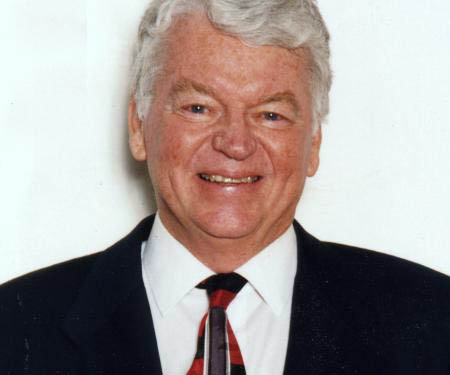Shimmering cloth, green and gold,
in two hours she knits a scarf,
every now and then she shows me
her work unfolding perfectly,
every movement poised and deft.
Line after line repeats her art,
astonishing how quick her fingers dart.
I sit beside her reading poems,
find lines I love to read to her.
Don’t, she says, don’t. I’ll drop stitches.
Be calm, be calm, you agitate my mind.
And so I mark the lines, for when she’s done:
Carver’s Fragment, Walcott’s egrets,
Jeffers’ passion for his dying wife in Hungerfield,
whose sprawling lines obsess me.
Sipping El Dorado and black Jamaican coffee,
fifteen year old liquor warms the heart.
She warms it, too. The glittering scarf unfolds;
she holds it up complete. For you when winter
comes, she says. Now read me your poetry, love.
Ian McDonald
Painting The Wind
“Poetry should reproduce the qualities of painting”
Horace, Ars Poetica
The brooding clouds of Essequibo,
brewing squalls and thunder,
march up the river-reaches.
The winds of Essequibo coloured by the sun
push strongly on these caravans of cloud,
rough up the shining coat of evening-water,
make a green tumult of the forest trees.
See the high birds ride the heavens on them,
see them veil the full moon with their silk.
Please God, if I am born again an artist,
let me go far up Essequibo again
and this time paint its soft and hurtling winds.
Ian McDonald
David Dabydeen, poet, novelist, and critic remarked with some degree of heightened interest, that he had just read a volume of unpublished poems by Ian McDonald. They contained, he said, some startling and impressive work that seemed to be overflowing from the poet at this stage of his long career. He was referring to the volume of “New Poems” which were published in 2018 in Ian McDonald’s New and Collected Poems by Peepal Tree Press.
This is a considerable volume of new work divided into several groups: “1. Annals”, “2. Lives”, “3. Presences”, “4. Speculations”, “5. Questionings” and “6. Maturities”. Put together, these are an entire new collection of poetry by a writer who has had 9 collections of verse since 1983. These include three winners of the Guyana Prize for Best Book of Poetry 1992, 2004, and 2012.
These groups represent a wide range of interests, a variety of topics, but reflect McDonald’s main preoccupations, repeated throughout his many publications. Among these Jeremy Poynting identified poems which “celebrate the pleasures of good company, love, marriage, children, food, gardens and books” and “a compassionate concern with the suffering of Guyana’s poor”. Yet, to those may be added themes and interest which recur predominantly – and these include a long preoccupation with mortality. The collections are charged with Wordsworthian musings including an overflow of feeling but dominated by “intimations of” mortality. McDonald revisits in repeated poems, references to ageing, death, time, and mutability.
Many poems arise from autobiography, McDonald’s family, family life, experiences in tennis and, in particular, his visits to and his awe-inspired obsession with the Essequibo River and rainforest landscape. But McDonald has a way of treating with everyday subjects and making them into something to interest his readers.
Stanley Greaves, artist (painter, sculptor) poet and critic makes reference to that particular quality. He cites McDonald’s “Any Poem” as “a kind of oblique testimony to the writing of poems”. The philosophy there seems to be that anything can be (turned into) a poem.
Greaves, who is himself a metaphysical, also refers to “a metaphysical tone” in the poetry. There is a glimmer of that in “Painting The Wind” (printed above). Greaves engages the idea of poems about poetry, and both of these – “Painting The Wind” and “Poetry” are well within this category. And the subject of poetry, too, is among McDonald’s often-treated topics – the reading of it, which is a passionate occupation in his verse, and the writing of it.
Both Wordsworth and John Keats, specialists on deep immersion into the landscape and in deep feelings and emotions (which McDonald indulges) both express the importance of the imagination. That is a major player in McDonald’s “Poetry” (printed above). The interesting elements in this poem include the imagination, which influenced its selection from among the collection of “New Poems”.
Of greatest interest here is the poet’s intertextual references. He mentions the work of other poets such as Derek Walcott and Robinson Jeffers, both of relevance, particularly Walcott’s egrets and Jeffers’ hawks. But “Poetry” itself incites the imagination because of other poetry that it invokes. It is a love poem – the persona is indulging a favourite pastime of his, reading poetry, while his love practices her exquisite skill in knitting. They share these passions as he selects verses to read to her while she is making him a gift of a scarf.
They are together making the most of their company, but the story is reminiscent of another love story told in the great poetry of antiquity. There are similarities, but ironic differences. This great love story of old is that of Penelope and Ulysses, otherwise known as Odysseus, told by the legendary Greek poet Homer in the two magnificent epics The Iliad and The Odyssey. It celebrates the loyalty, patience, and chastity of Penelope.
When Greece went to war against Troy, Ulysses was one of their most prominent generals and tacticians. He was away from home for 20 years, leaving his wife Penelope and baby son Telemachus. The war lasted 10 years before the Greeks defeated the Trojans. Then it took Ulysses 10 years to make his journey back home. He was punished by Poseidon the God of the Sea, who was angry at the sacking of Troy, and kept him wandering for 10 years in his voyage home.
Meanwhile, at home, his wife was besieged by suitors demanding her favours. They constantly told her that her husband was dead, and she should marry one of them, and just as consistently, she refused. She had faith that Ulysses would return and because of the pressure put on her by the suitors, she took to a series of tricks to forestall them. Among the most famous was the weaving of a shroud. She told them that she had at last given up her husband as dead and was therefore knitting a shroud to symbolise that. As soon as the work was finished, she promised, she would then choose from among them. But it was a trick. She sat weaving in full view of everyone each day, but every night, in secret, she unraveled all the work done, only to start over the next day – so this knitting would never be over.
In McDonald’s poem, the lovers are together, not far apart, and instead of taking forever to complete the work, the lady works swiftly to completion.
Robinson Jeffers shares with McDonald a love for the wild – the landscape and animals, particularly birds in the case of McDonald. Jeffers is known for his poem “Hurt Hawks” in which he blames mankind for cruelty to the hawk. “I would rather, except the penalty, kill a man than a hawk” he asserts in the moving poem describing the destruction of a hawk by man. McDonald admires hawks in Essequibo poems.
These two poems are not well known and are not among McDonald’s more celebrated verses. They are samples of his “New Poems” which in many ways continue his run of often revisited themes, but also contain something additional and startling.









